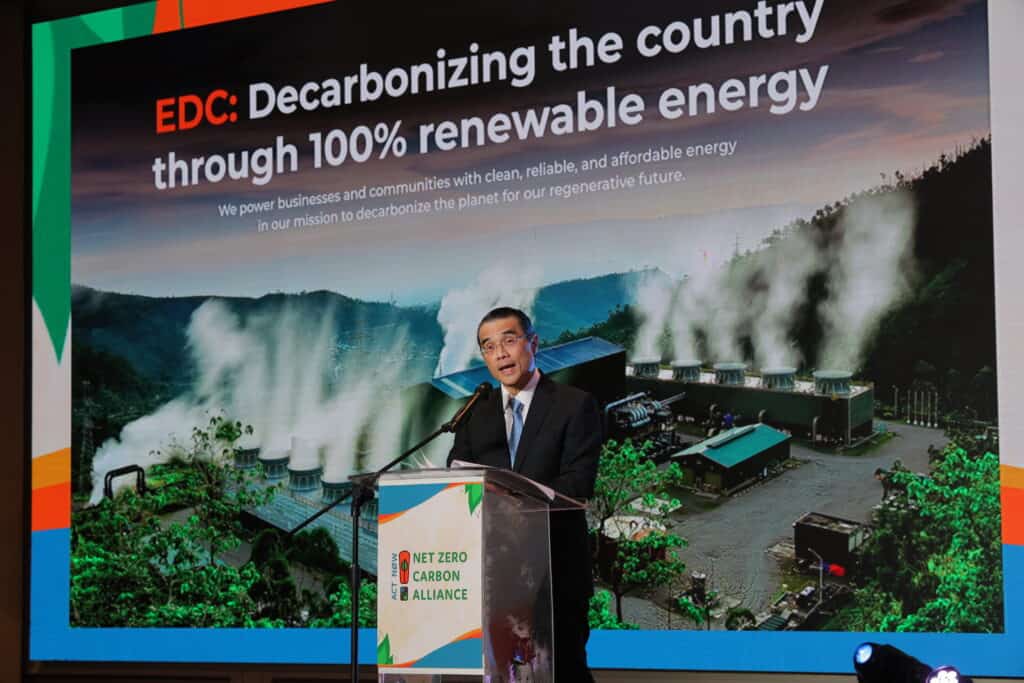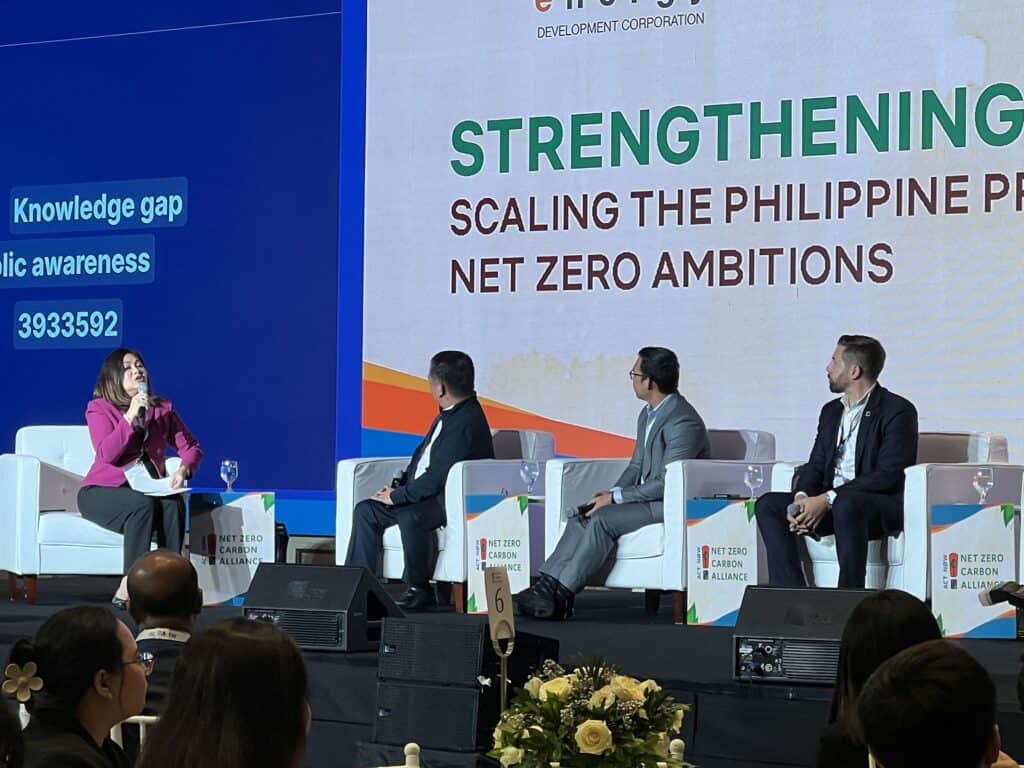The global urgency to mitigate climate change has triggered a wave of collaboration among businesses, governments, and advocacy groups. At the forefront is the push toward achieving net-zero carbon emissions by 2050, a goal underscored during the Net Zero Carbon Alliance (NZCA) Conference on September 19, 2024.
During his keynote speech, Federico Lopez, chairman and CEO of First Philippine Holdings Corporation, Lopez painted a grim picture of the current state of the planet, emphasizing that climate inaction will lead to further devastation.
Citing the record-breaking heatwaves of 2023 and the anticipated extreme temperatures of 2024, Lopez warned that no place on Earth is safe from the effects of climate change. From the Philippines’ vulnerability to typhoons and rising sea levels to deadly wildfires and severe droughts across the globe, he stated, “The impacts are undeniable, and no place on the planet is spared.”
Lopez emphasized that while governments and scientific communities have long sounded the alarm, global efforts remain insufficient to prevent the planet from surpassing the 1.5°C warming limit set by the Paris Agreement.
He warned that the longer the world waits to act, the greater the cost will be. “Our own actions have led us here, and our future actions must lead us out,” Lopez concluded.
Nowhere to Go But Net Zero
Lopez said that 2023 was the hottest year on historical record, and 2024 is well on its way to becoming the hottest year ever, citing data that pointed to heatwaves, wildfires, and extreme weather events. The consequences of these climate events are being felt worldwide, from deadly wildfires in South America to record-breaking floods in Asia.
Lopez emphasized that while the scientific community has long warned of the devastating effects of climate change, action has lagged. He lamented the lack of sufficient global progress toward limiting global warming to 1.5°C, a key goal of the 2015 Paris Agreement.
“The world is not on track, and the cost of inaction will be catastrophic,” he said, referencing the findings of the 2023 Global Stocktake report.
Lopez stressed the importance of reducing greenhouse gas emissions. He outlined the three-phase plan to reach Net Zero by 2050, with an eventual goal of reducing the concentration of greenhouse gases to achieve net negative emissions.
In Phase 1, the goal is to reduce global greenhouse gas (GHG) emissions by 59 gigatons per year, peaking by 2025. This phase reflects the current global effort to curb emissions, but Lopez warned that this alone will not suffice.
Phase 2 targets eliminating all GHG emissions by 2050, achieving net-zero carbon levels. This will involve decarbonizing energy systems and scaling up renewable energy capacities across the globe.
Finally, in Phase 3, the world must go beyond net zero by reducing the existing concentration of GHGs in the atmosphere to reach net negative emissions.
Lopez stressed that simply halting emissions is not enough. “Everything that’s up there has to come down because the damage will continue even if emissions stop,” he warned. The ultimate goal is to reverse the damage caused by excessive atmospheric carbon levels.

The Role of Renewable Energy in Achieving Net Zero
Lopez identified energy as the most crucial factor in the global transition to net zero, referring to it as the “greatest energy transition in human history.” He outlined the key strategies needed, including electrifying industries, improving energy efficiency, and building an energy system based on clean, renewable sources.
First Philippine Holdings’ energy arm, the Energy Development Corporation (EDC), is at the forefront of this energy transition. EDC has already invested heavily in geothermal energy, one of the few renewable sources that provide reliable, 24/7 power. Lopez revealed plans to expand into other green energy sectors, including hydro, solar, and wind power.
Lopez added that by 2050, the world will need five times the electricity it currently uses, with clean energy accounting for up to 12 times the present levels.
“This will require unprecedented collaboration and innovation, but it’s a challenge we’re ready to face,” Lopez said.

Private Sector Collaboration and Legislative Support
The conference also spotlighted the growing support from the private sector in the fight against climate change. NZCA, the largest organization of private companies committed to net-zero carbon emissions in the Philippines, introduced 13 new members, bringing its total to 34. These companies are taking concrete steps to track, manage, and reduce their carbon footprints.
Atty. Allan V. Barcena, Executive Director of NZCA, shared updates on partners’ progress, with some achieving up to a 35% reduction in Scope 1 (direct) emissions and others making significant strides in Scope 2 (indirect) and Scope 3 (supply chain) emissions.
In the legislative arena, Bukidnon Rep. Jose Manuel Alba emphasized the need for stronger climate policies, including the Low-Carbon Economy Act, which mandates decarbonization plans for major emitters. He called on the private sector to support these efforts, stating that achieving a low-carbon economy requires a whole-of-nation approach.
“The battle against climate change cannot be won by the government alone. We need collaboration from all sectors,” Alba said.
Carbon Pricing and Emissions Trading Systems
Another important topic at the conference was the introduction of carbon pricing mechanisms, such as carbon taxes and emissions trading systems. According to Alba, these systems will play a crucial role in the Philippines’ transition to a low-carbon economy.
While carbon taxes are seen as the “easiest” policy to implement, they are also burdensome for the private sector. Emissions trading, on the other hand, is more complex but offers greater flexibility.
Alba explained that companies exceeding their emissions caps would have to pay a set amount, which would be turned into an internal carbon fund. This fund could then be reinvested into the companies’ own transition efforts, such as deploying new technologies to reduce emissions.
